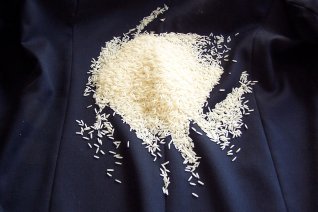|
Vitamin B1 ThiamineDeficiency in Vitamin B1 Thiamine is the cause of beriberi, a disease that was found in Asia, in prison populations and among sailors. The one good thing, in a perverted sense of good, that came from milling rice and the prevalence of beriberi was the search for the cause with the ultimate discovery of the first B vitamin, thiamine. Hence the nomenclature of B1. (Nutr Suppl, 80-82) It is also a good illustration of the idiocy of processing natural foods. Whole grains are a good source of fiber, minerals and B vitamins generally. So it makes no sense to mill grains. Parenthetically many milled grains are significantly higher on the glycemic index scale. The higher the total glycemic load in any meal the more glucose in the blood, the greater the need for insulin to keep your blood sugar within a specific band for maximum health. But continually spiking your insulin to deal with excess glucose over years can result in Type 2 diabetes, the so-called adult onset diabetes. Indeed, because of the over-processing of foods in western diets, it is becoming a problem in pre-teens and teenagers, not just in adults. For more on this go to our page on Healthy Eating by clicking here (opens in new window), or to our page on Diabetes by clicking here (opens in new window). Some of the facts about Vitamin B1 include: • water soluble vitamin • essential for food metabolism Alt Med • essential for release of energy for cellular function Alt Med • deficiency causes beriberi • deficiency is related to psychosis • can improve mental function in Alzheimer’s patients at 3-8 g/day • is itself impaired by alcohol RDA No RDA. AI is: • Adults 1.2 mg/day • Teens 1.2 mg/day • Children 1-4 years 0.5 mg/day; 4+ years 0.6 mg/day Dosage by Supplements Reasonable dosage for average person would be about 30 mg/day. Dosages up to 100 mg/day appear to be safe: • Adults 27 mg/day • Teens 9 mg/day • Children 1-4 years 1.25 mg/day; 4+ years 2.5 mg/day
No known toxicity with B1. For more information on Alzheimer’s and Vitamin B1Thiamine see my book It’s About Health or surf on to other topics on this website.
It's About Health
|
 This vitamin is lost in the milling of rice to produce white rice as the whole grain rice is reduced to the supposedly superior and tastier white rice. Had whole grain rice been left alone it is likely that beriberi would not have been so prevalent, nor would it be so common in areas where polished white rice is still a major part of diets.
This vitamin is lost in the milling of rice to produce white rice as the whole grain rice is reduced to the supposedly superior and tastier white rice. Had whole grain rice been left alone it is likely that beriberi would not have been so prevalent, nor would it be so common in areas where polished white rice is still a major part of diets.